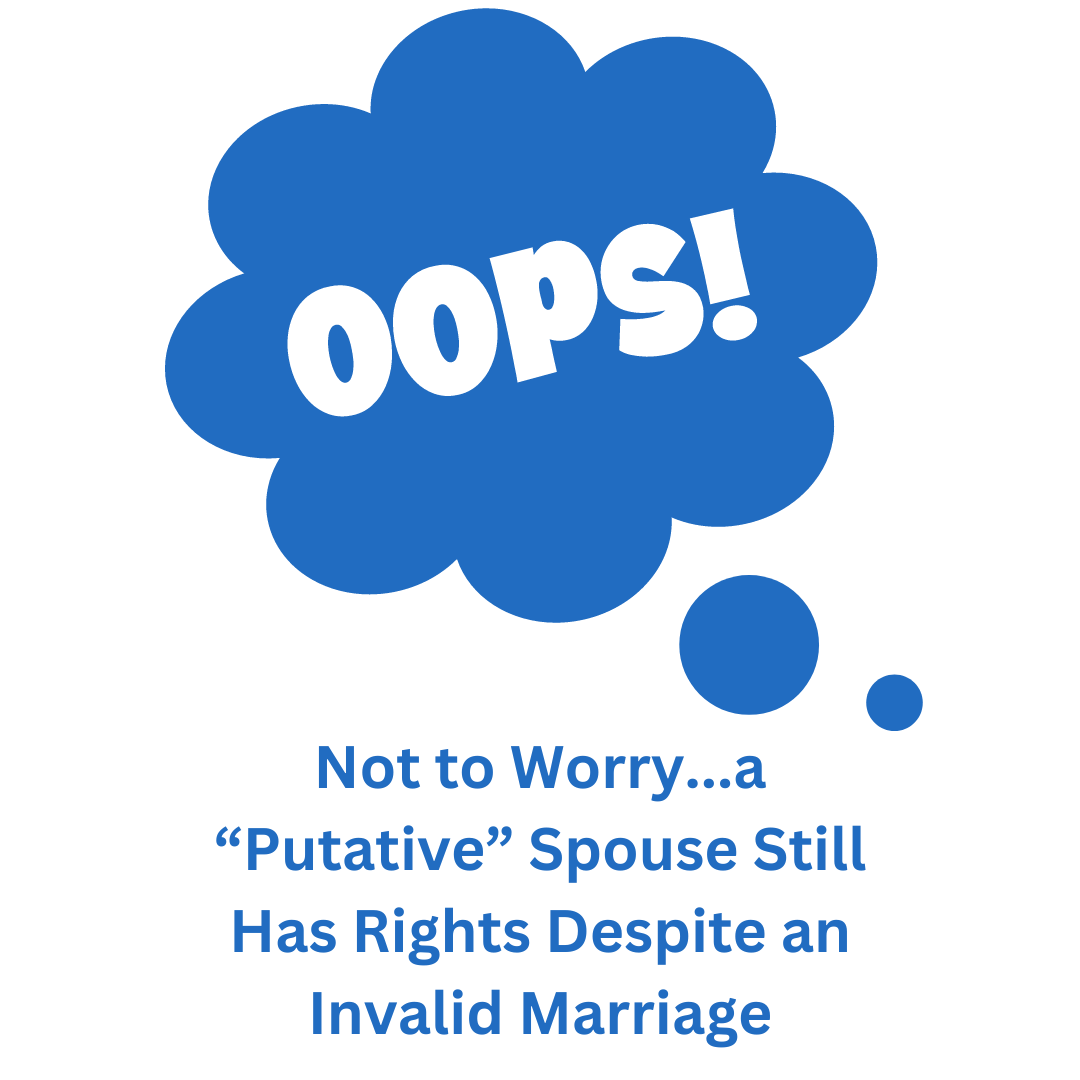Understanding the Putative Spouse Doctrine and a Putative Marriage
The California putative spouse doctrine protects individuals who entered a marriage in good faith, believing it to be legally valid, only to later discover the marriage is invalid due to some technical issue or legal flaw. These spouses are in a putative marriage—a relationship that, while legally invalid, is treated similarly to a valid marriage in most respects for family law purposes. Let's explore how this doctrine works when it applies and what relief a putative spouse may receive under California law.

What Is a Putative Spouse?
A putative spouse genuinely believed, in good faith, that their marriage was legally valid. Family law courts recognize that not all spouses who enter an invalid marriage do it knowing it is invalid. Therefore, putative spouse laws in California allow an innocent spouse with a good faith belief in the validity of the marriage to have the right to certain legal protections and orders, even after the marriage is declared invalid through an annulment.
The "good faith belief" standard is subjective. It focuses on the person's state of mind rather than what a "reasonable person" would believe.
But that does not mean believing a marriage is valid, no matter how absurd that belief is, satisfies the California test for being a putative spouse. When a court looks at the genuineness of the belief, it can still consider the facts surrounding the marriage, including those that might indicate the marriage was invalid.
Examples of Putative Marriages
One common scenario where the putative spouse doctrine may apply is when a couple mistakenly fails to file their signed marriage license with the county recorder within 10 days. While this is a legal technicality, it does not have to invalidate the marriage after the ceremony because the solemnization legally validates the union.
Another example is when a spouse mistakenly believes their prior marriage was dissolved and enters a new marriage based on that belief. Even though the new marriage may be bigamous (because that spouse is still technically married to their prior spouse), a court can still treat the second marriage as a putative marriage and allow the spouse to be a putative spouse, as long as that spouse acted in good faith.
What Happens in a Putative Marriage?
If the court finds that one or both spouses were putative spouses, the putative spouse has the right to similar legal protections as those in a valid marriage.
These protections may include:
- Division of Property: Under Family Code Section 2251, if one or both parties qualify as putative spouses, the court will divide the property acquired during the union as community property or quasi-community property. This is called "quasi-marital property." It will be divided in the same way as in a legal dissolution of marriage.
- Spousal Support: A putative spouse may be awarded spousal support during the proceedings and in the final judgment. Family Code Section 2254 lets the court treat the putative spouse as if the marriage had not been void or voidable.
What About Child Custody, Child Support, or Restraining Orders?
The putative spouse doctrine does not affect these issues. A family court can decide matters like child custody, child support, or restraining orders, regardless of whether a spouse is a putative spouse. The same applies to attorney's fees orders.
Domestic Partnership and the Putative Spouse Doctrine
California law also extends the putative spouse doctrine to domestic partnerships. Suppose someone enters a registered domestic partnership in good faith, believing it valid. In that case, they may be protected under the putative spouse doctrine even if the domestic partnership was not properly registered. Even a domestic partner who, in good faith, believes in the validity of their partnership can seek the same protections as a putative spouse.
Need to Talk About Your Putative Spouse Issues?
The putative spouse doctrine in putative marriages protects those who entered a marriage or domestic partnership believing their union was valid. If you want an affordable strategy session to discuss your specific situation that deals with the putative spouse doctrine, contact us.